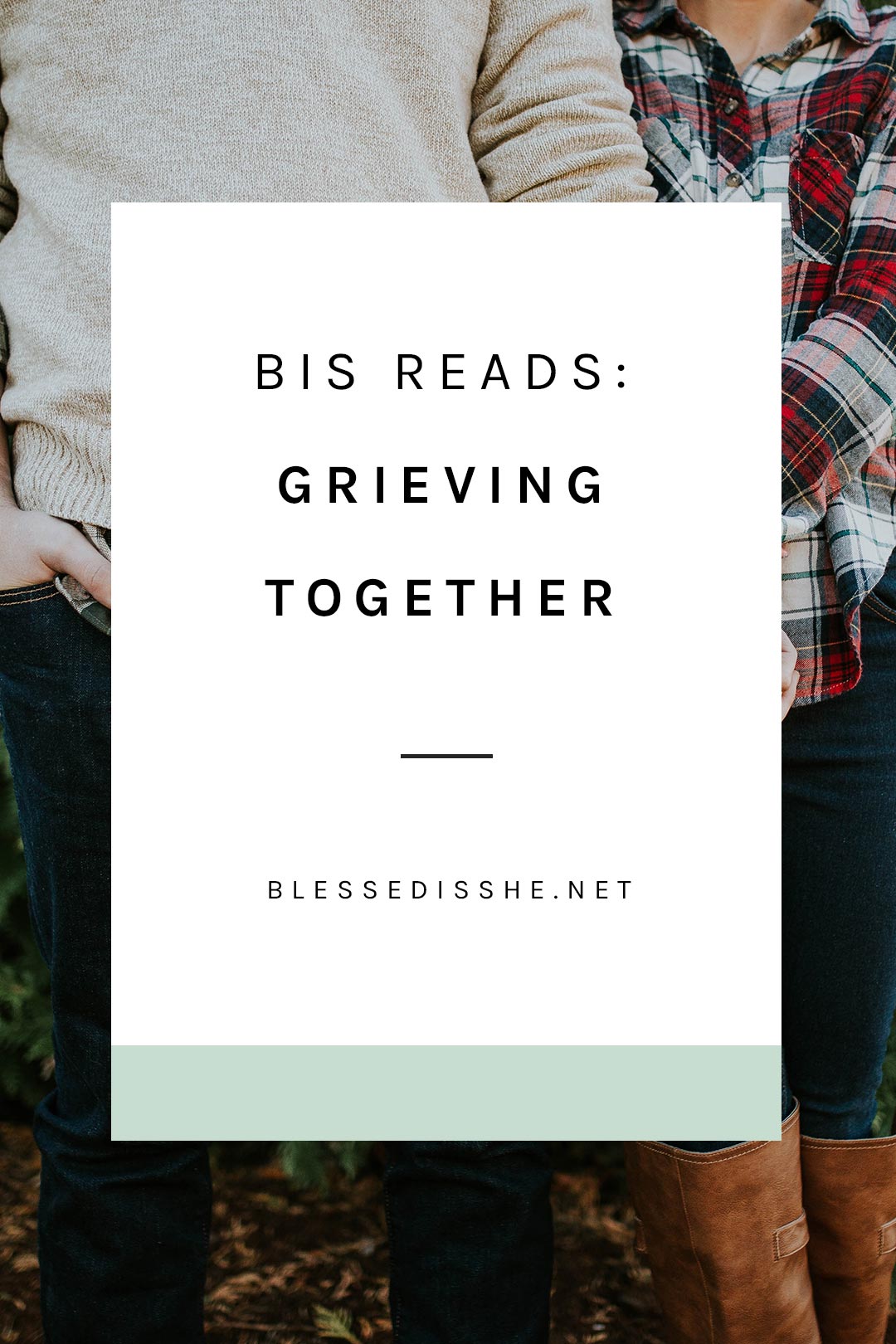
I was alone.
I did not know about the blogs or books available. My closest friends were still single. The only person I knew who had had a miscarriage what a classmate of mine, who openly shared her story, the day before I miscarried.
We called the church. The pastor walked us through the steps of grief and blessings of the Church with a sincerity and sensitivity. He used the advice of Rachel’s Vineyard as a guide. He did not know any other resources himself.
The resource has come.
Grieving Together: A Couple’s Journey through Miscarriage, by Laura Kelly Fanucci and Franco David Fanucci, has everything I can imagine a book dedicated to the emptying grief of miscarriage needs.
My miscarriages happened seven and nine years ago. We have been through darkness and crises since then, and the previous losses faded to the background. I thought I knew everything I needed to know.
The authors share Scripture verses that reach into the very depths of my heart. God was with me.
![]()
![]()
Grieving Together
In the first chapter, which addresses the biological mechanisms behind miscarriage and medical terminology, I learned what type of miscarriage I had experienced. There are so many questions, and once ushered out of the doctor's office, so many of them go unanswered. We pack them away with the keepsakes we designated, the Mass card with the baby’s name on it, the hospital record from when the bleeding started.
The rest of the book is dedicated to understanding the aftermath of the tragedy and the hope that is our call.
Marriage and Child Loss
Compounding the loss of the child is the loss of unity sometimes experienced by the couple who cannot reconnect in their grief. Grieving Together takes a unique position as a joint effort by also reaching out and sharing the perspective and experience of the father of the child who has died. While I am taken back in memories, for the first time in years, I ask my husband questions about his experience when we lost our babies. Yes, he still thinks about them.
We discuss grief and the series of crises that shaped our lives for two years. He shares simply and succinctly where the anger was for him and how he felt we coped. How we were together on it. We gave ourselves space to do what each person needed. We knew we would grieve differently. It is not possible to anticipate how one will act or what one will need. The Fanuccis do not try. Instead, they bring awareness to the possible differences and allow the stories to speak for themselves.
Not Alone
The stories! Yes, with each chapter is a couple’s story, told from both perspectives. Sometimes jointly in one narrative, sometimes separately. Stories of unwanted-but-accepted-with fear-and-trembling pregnancies, stories of longed-for-then-lost pregnancies, stories of a miscarriage followed by healthy births. For all the diversity of experience out there, the Fanuccis collected a compelling set of stories. I found echoes of my own story there, again and again.
When I read a story from woman who experienced miscarriage, a prenatal diagnosis and infant loss, I thought to myself how not-alone I felt. Every story is unique, but maybe my normal, is more normal that I have realized.
The authors consider how the shared experience of miscarriage can strengthen the relationship between the mother and father. Allowing our unique grief, my husband and I met each other so much more honestly than ever before. Not alone…
Offering Support
The third part looks outward to friends and family with recommendations on how to support those who have experienced a miscarriage. Every October, pregnancy and infant loss awareness month, the blogosphere is inundated with advice on what not to say to someone in grief. The authors take is a step further and higher by acknowledging the intention of the speaker, digging into the meaning of common cliches and offering concrete examples on how to better convey that same heartfelt meaning: to be able to tell the person who is grieving, you are not alone.
Spiritual support offered includes Saint stories, prayer resources, prayers and rituals of the Catholic Church. At the end, there are 20 more pages of resources for those who grieve and those who wish to support, including the parish. In Heaven, online, in person, I am not alone.
The questions after each chapter, seeing how powerful they have been used in an online Facebook group have me thinking, maybe I could host a small group and use this book. We are not alone.
Who in Your Life Needs this Resource? Perhaps It's You?
Grieving Together, published by Our Sunday Visitor, is now for sale. To get a taste of this remarkable little book, Our Sunday Visitor is offering a free e-book with excerpts from Grieving Together, an amazing resource for anyone asking that question of how to support those who are grieving with comfort and not cliches.
Have you read this book yet? What are your thoughts? How has it helped you grieve your own loss or grieve the loss of someone you love?
Grieving Together: A Couple’s Journey through Miscarriage #BISblog //Click to tweet
Kathryn Anne Casey is a graduate of Divine Mercy University, freelance writer, housewife, and mother of four children. Her weekly newspaper column “Here’s to the Good Life!” and blog focus on art, psychology, consumerism and the importance of local community. Find out more about her here.
































